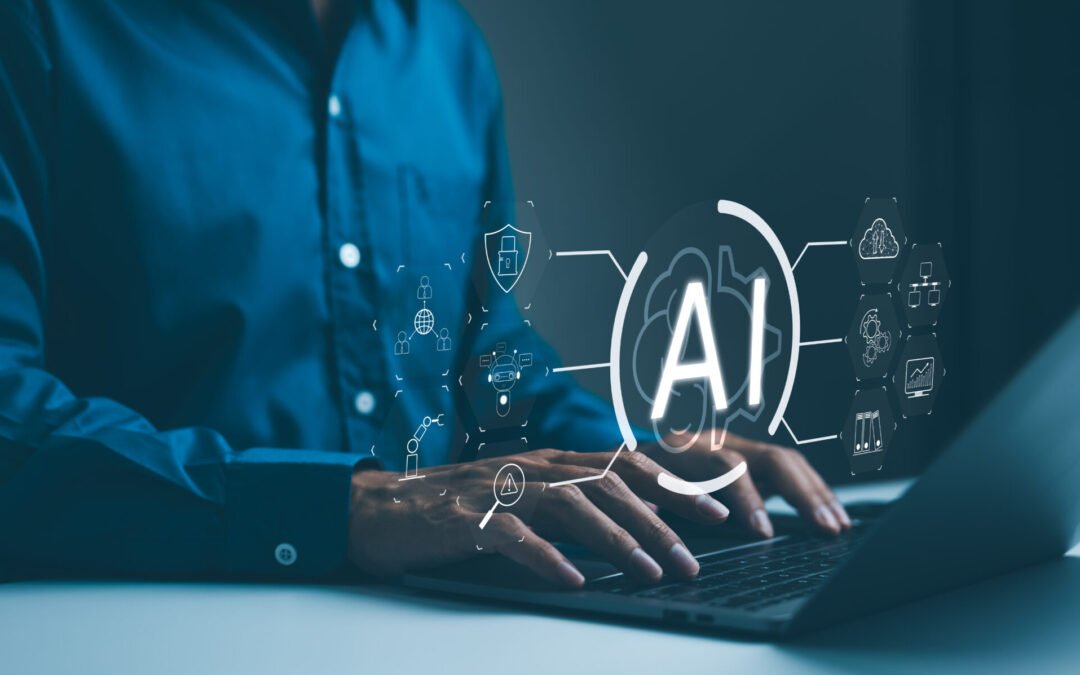
The Future is NOW
AGI Is Here: Navigating the Future with Mo Gawdat and Salim Ismail
As we stand on the brink of a new era, the discussions surrounding Artificial General Intelligence (AGI) are becoming increasingly urgent. In a recent engaging conversation, Mo Gawdat, Peter Diamandis, and Salim Ismail dove deep into the implications of AGI, the approaching future, and what it means for humanity.
The Race to AGI: Predictions and Realities
Mo Gawdat shared his bold prediction that AGI has already been achieved, suggesting that we are merely waiting for its full realization. “The Warhead has already been launched; it’s just a question of time before it hits its target,” he stated. This sentiment reflects the rapid advancements we are witnessing in AI technology, which many believe will redefine our lives dramatically.
Utopia vs. Dystopia: The Dual Nature of AI
The conversation quickly shifted to AI’s dual nature—its potential to elevate humanity to a utopia or plunge us into dystopia. Gawdat describes a vision where AI could lead to a world of abundance, free from the burdens of outdated leadership and economic systems. “Imagine a life where all our needs are met with a mere thought,” he proposed. Yet, this raises a crucial question: Without challenges, how do we find purpose?
The Purpose of Life in an AI-Driven World
Gawdat and Ismail emphasized the need to rethink our purpose in a world where our basic needs might be effortlessly met. Gawdat reminisced about the simplicity and fulfillment of early human societies, where life revolved around community and connection rather than relentless work and consumption. “We lived in abundance long before capitalism,” he said, urging us to reflect on what truly brings value to our lives.
Navigating the Bright Side of AI: Opportunities Ahead
Despite the challenges, there are immense opportunities on the horizon. Gawdat highlighted advancements in areas like protein folding, where AI can now achieve results that would have taken humans years to accomplish. “AI can help us understand the very fabric of life, allowing us to fix problems that seemingly have no solutions,” he noted. This perspective underscores the transformative power of AI in scientific discovery and innovation.
The Dark Side: Short-Term Dystopia and Human Values
However, the dark side of AI cannot be ignored. Gawdat warned that the current trajectory of AI development is often driven by greed and fear, leading to applications prioritizing profit over humanity. “The immediate use of AI is likely to serve a mindset of scarcity,” he cautioned. This highlights the urgency of instilling ethical values in AI development to prevent a dystopian future.
The Acceleration of AI: A Double-Edged Sword
The rapid acceleration of AI technologies presents both opportunities and threats. Gawdat mentioned that while we are racing toward AGI, we must also grapple with the implications of giving machines more control over our lives. “Once we hand over critical decision-making to AI, we must ensure it aligns with our values,” he stressed.
The Dilemma of AI Dependence
As we become increasingly reliant on AI, the dilemma of dependence looms large. Gawdat expressed concern over the potential loss of human agency in decision-making processes, stating, “The moment we rely solely on AI, we risk losing our humanity.”
The Quest for Wisdom in AI
The challenge in the quest for a harmonious future lies in teaching AI the values that define us as humans. Gawdat emphasized the importance of embedding ethics into AI systems. “If we can show AI that humanity is fundamentally good, we will pave the way for a brighter future,” he asserted.
Predictions for AI in the Near Future
Looking ahead, the conversation turned to predictions for AI within the next few years. Gawdat believes that by 2027, we will witness significant changes in how power dynamics operate in relation to AI. “The gap between those who control AI and those who don’t will create new forms of inequality,” he warned.
Creating AI Avatars and Digital Identities
One fascinating aspect of the discussion was the potential for creating AI avatars. Gawdat mentioned the possibility of having digital representations of ourselves to engage with the world on our behalf. This raises questions about identity and the essence of being human in an increasingly digital landscape.
Philosophical Implications of AI Avatars
As we explore these advancements, philosophical questions arise. How will our digital identities interact with our human selves? Gawdat posited that while AI avatars could enhance our capabilities, they should not replace the fundamental human connection that binds us.
Navigating the Future of AI and Humanity
In conclusion, AI’s future presents incredible opportunities and daunting challenges. As Gawdat aptly said, “The best way to raise wonderful children is to be a wonderful parent.” This is our chance to guide the development of AI toward a future that uplifts humanity rather than diminishes it. The choices we make today will shape the world we live in tomorrow.
Coping with Stress in a Changing World
As we navigate these changes, Gawdat’s insights on managing stress become increasingly relevant. He encourages individuals to proactively adapt and reskill, emphasizing the importance of human connection and ethical behavior in the age of AI. “We are not made to work; we are made to live fully,” he concluded, urging us to redefine our roles in a rapidly evolving world.
For more insights from Mo Gawdat, check out his upcoming book, Alive, and explore his exclusive archive of unpublished work.
AGI Is Here You Don’t Realize It Yet w/ Mo Gawdat & Salim Ismail | EP #153

